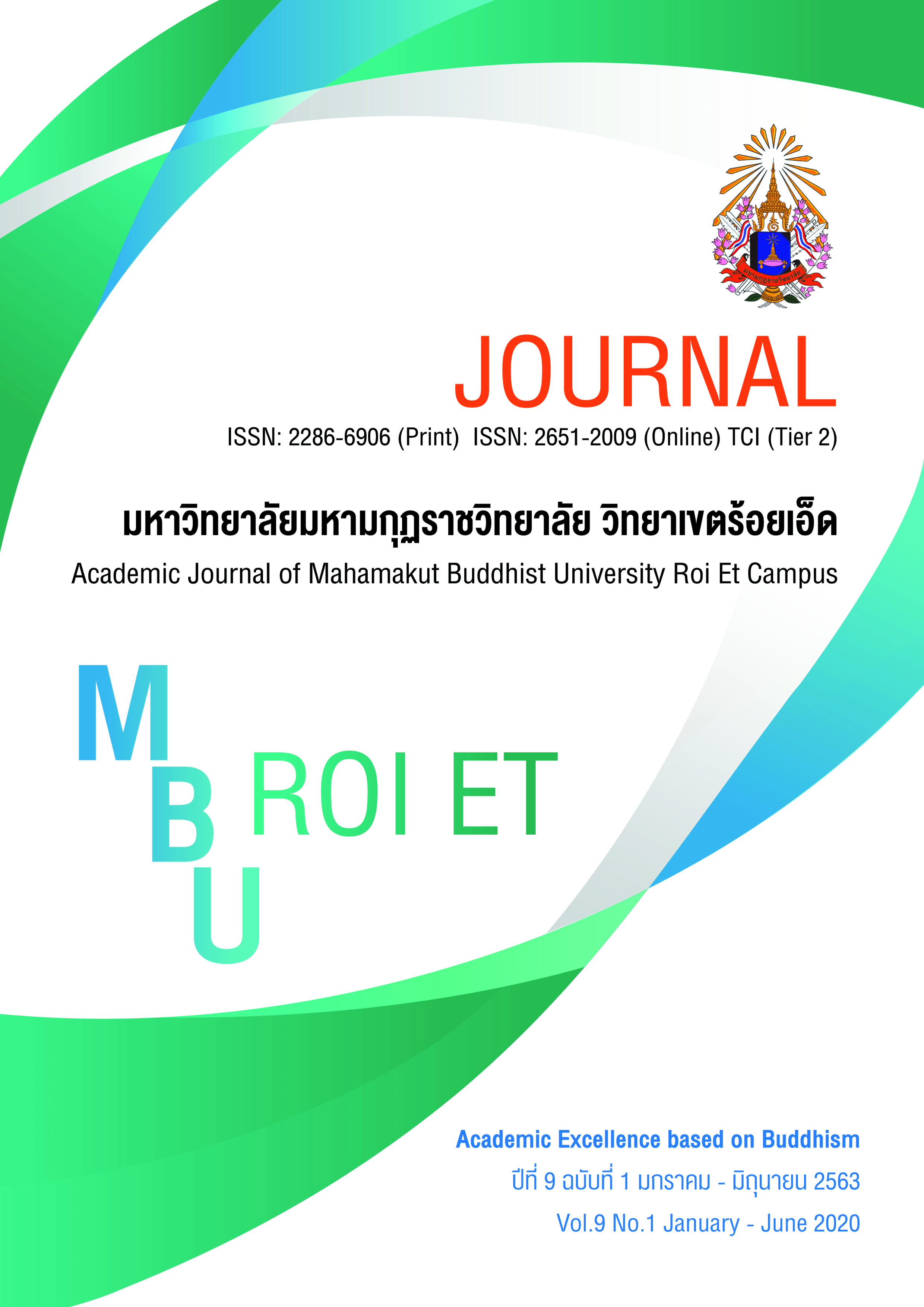Thai Citizen Civic Identities for Civic Public Administration
Main Article Content
Abstract
The research on Thai citizen civic identities for civic public administration aimed to investigate appropriate identities of ideal Thai citizens who could take part in the public administration of Thailand and drive the nation towards public interest needed by the citizens and to explore case studies of successful civic contributions to the national development. This research used qualitative research methodology which included meta-analysis. The data obtained from documentary research were gathered and synthesized via deductive reasoning leading to the conclusion of the preferred civic characteristics. The result showed that an ideal citizen should be: (1) a knowledgeable, educated, and capable person who could solve the problems, (2) a person responsible for himself, others, and the society, (3) an active participant who engages in problems and resolution, (4) a person who respects and accept differences and heterogeneity, (5) a person who respects human dignity, (6) a person who stands on egalitarianism and accepts horizontal equity, (7) a person who respect the human rights, liberty, the fair regulation of the society, (8) a person who pays respect for the king and maintain his loyalty to the king, (9) a person who possesses patience and endeavors to work on his duties to achieve the goals, (10) a person who possesses leadership, (11) a person with morality who focuses on common goods, and (12) a person with pride in being Thai.
Article Details
References
ธนวัฒน์ พรหมทอง, และ วรพงศ์ ตระการศิรินนท์. (2560). การศึกษาความเป็นพลเมือง: กรณีศึกษาประชาชนในเขตพื้นที่ตำบลอุโมงค์ อำเภอเมือง จังหวัดลำพูน. วารสารรัฐศาสตร์และรัฐประศาสนศาสตร์. 8(2). 103-127.
พระพรหมคุณภรณ์ (ป.อ.ปยุตฺโต). (2559). พจนานุกรมพุทธศาสตร์ ฉบับประมวลธรรม. มูลนิธิการศึกษาเพื่อสันติภาพ พระธรรมปิฎก (ป.อ.ปยุตฺโต). สืบค้นเมื่อ 20 มีนาคม 2561. จาก http://www.watnyanaves.net/uploads/File/books/pdf/dictionary_of_buddhism_pra-muan-dhaama.pdf
พระพรหมคุณากรณ์ (ป.อ.ปยุตฺโต). (2553).พุทธธรรม. กรุงเทพมหานคร : โรงพิมพ์ บริษัท สหธรรมิก จำกัด.
ภณ ใจสมัคร. (2560). ความเป็นพลเมืองในสังคมยุคใหม่. สืบค้นเมื่อ 29 มีนาคม 2561. จาก http://ge.kbu.ac.th/Download9_files/img/07.pdf
มานพ นักการเรียน. (2546). การวิเคราะห์การบริหารและการปกครองในคัมภีร์ชาดก. นครปฐม : มหาวิทยาลัยมหามกุฏราชวิทยาลัย.
มานิตตา ชาญไชย. (2559). ความเป็นพลเมืองกับการบริหารจัดการตนเองชุมชนไทย. วารสารรัฏฐาภิรักษ์. 59 (1). 77-95.
วรรณา สุติวิจิตร. (2541). พุทธวิธีสอนในระดับประถมศึกษา. กรุงเทพมหานคร : ภาควิชาการศึกษาคณะศึกษาศาสตร์ มหาวิทยาลัยเกษตรศาสตร์.
สำนักพระราชวัง. (2561). โครงการจิตอาสา “เราทำความ ดี ด้วยหัวใจ”. สืบค้นเมื่อ 27 มีนาคม 2561. จาก http://www.brh.thaigov.net/webboard/index.php?topic= 55.0
เอนก เหล่าธรรมทัศน์ และวลัยพร รัตนเศรษฐ. (2557). รัฐประศาสนศาสตร์พลเมือง. กรุงเทพมหานคร : มหาวิทยาลัยธุรกิจบัณฑิต.
Chrislip, D. D., O’Malley, E. (2013). For the Common Good: Redefining Civic Leadership. Wichita, KS : Kansas Leadership Center Press.
Denhardt, J. V., & Denhardt, R. B. (2007). The new public service: Serving, not steering. Armonk, N.Y : M.E. Sharpe.
Scott, J. (1990). A matter of record: Documentary sources in social research. Cambridge, UK : Polity Press.


